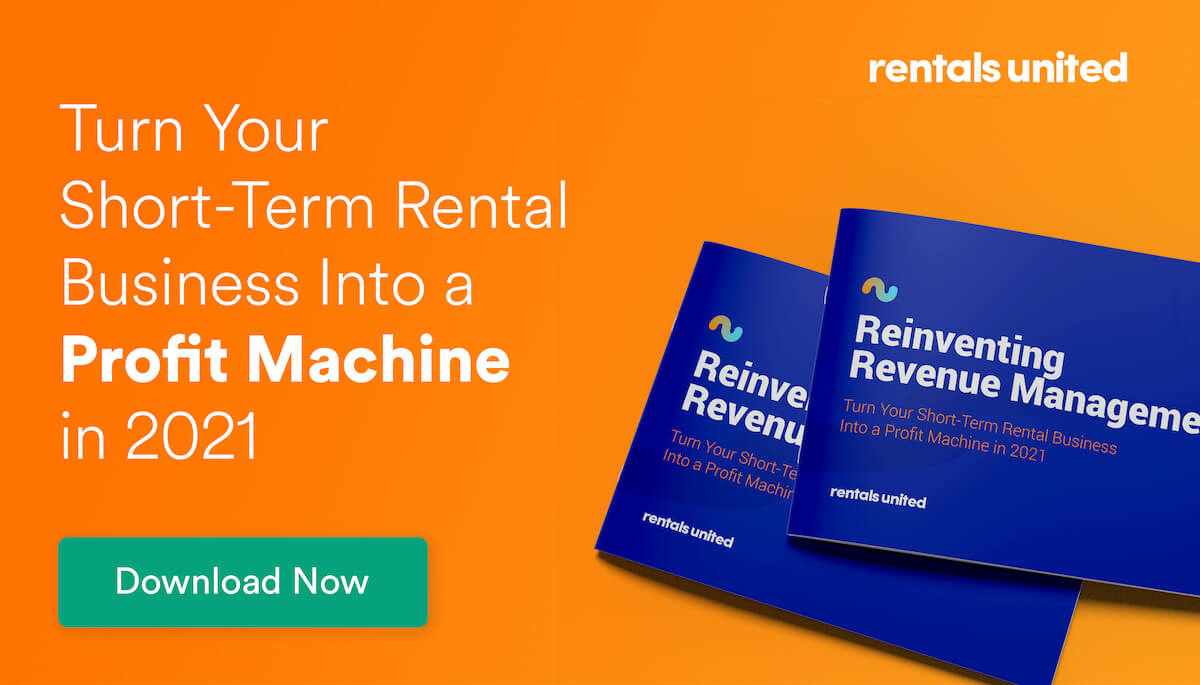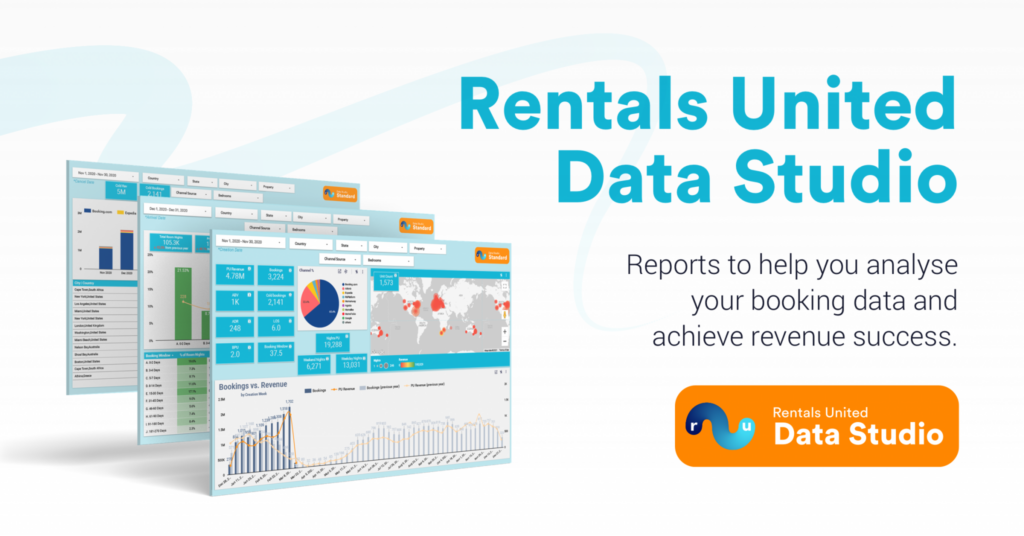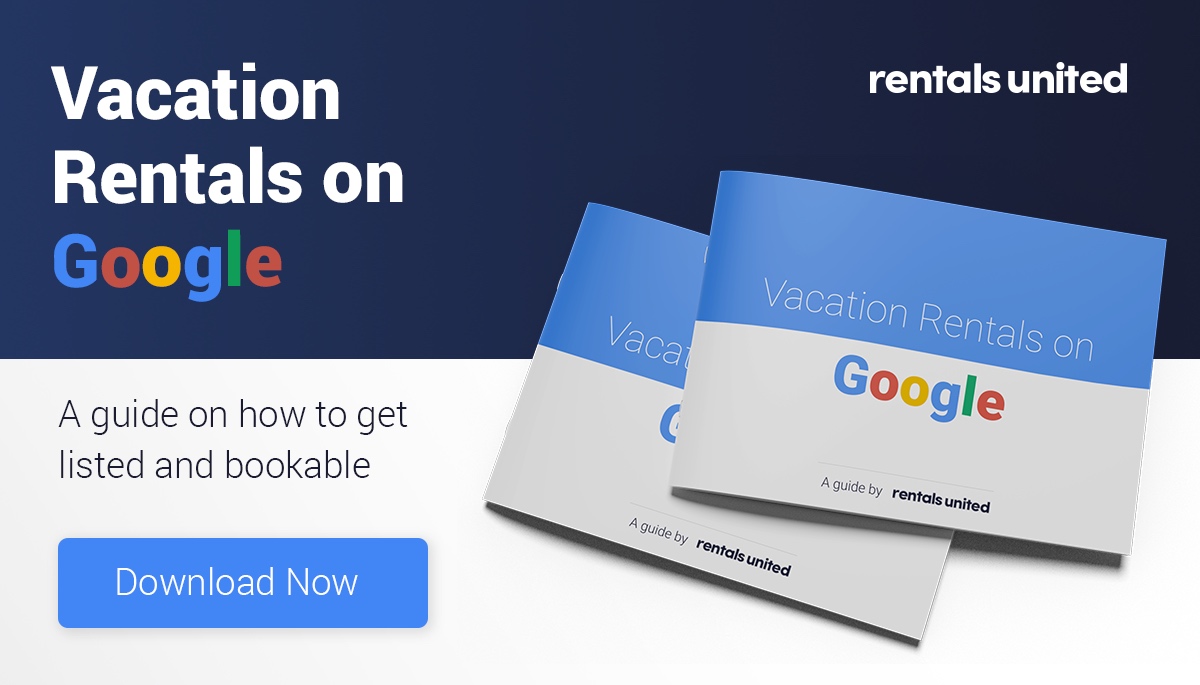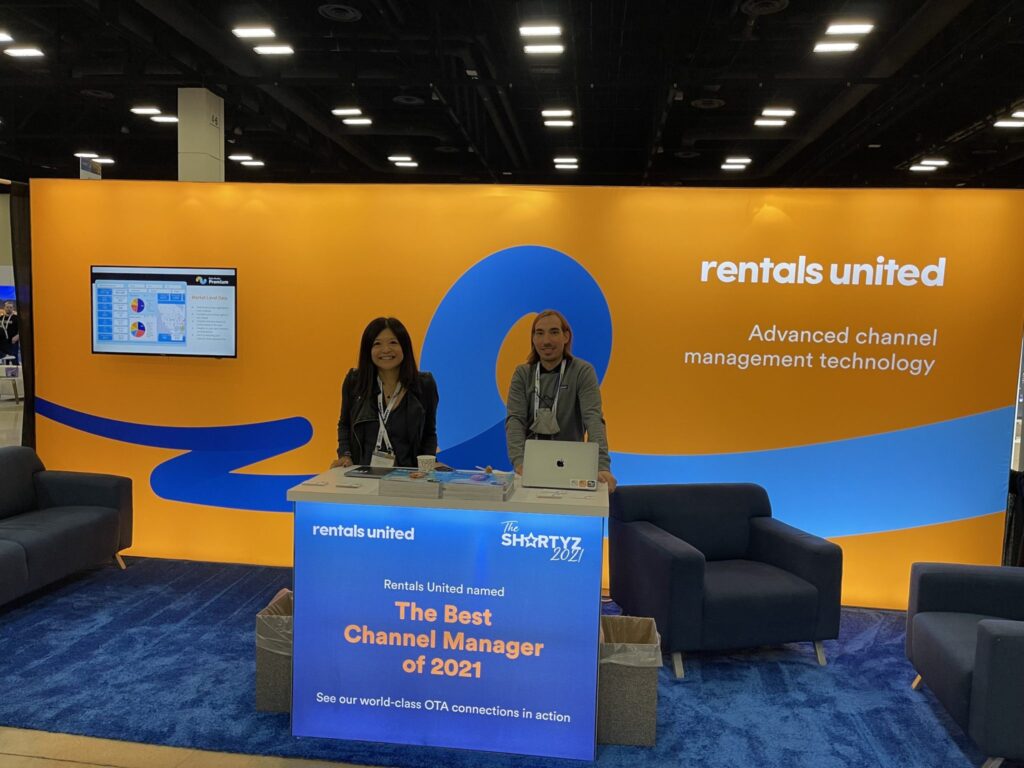In-person vacation rental events are back and we couldn’t be happier! Members of the Rentals United team recently attended two major conferences in the US: DARM in Charleston, South Carolina and VRMA International in San Antonio, Texas.
We loved the atmosphere of both events and learned a lot about the industry in just a couple of days. We thought we’d share our main takeaways with you, along with our own insights on industry hot topics.
Let’s get right into it!
Data and revenue management: our takeaways from DARM
As the vacation rental industry continues to find its footing in the new normal, revenue management is more important than ever. Some baseline seasonality trends are still relevant, but in a lot of cases, historical data can no longer be used to make decisions about the future.
As a result, we need a more reactive approach to revenue management. Using data to identify trends as quickly as possible will enable revenue managers to course-correct and maximise their revenue potential as travel behaviours continue to shift.

Choosing the right provider
There’s a lot more diversity in vacation rental revenue management than before, with emerging pricing software, PMS mergers/consolidations and strengthened channel management connectivity solutions.
With these advancements come more complexity and a wider array of choices. So how do you know what solution will work best for you?
Here are a few things to consider:
- Ask the tough questions. Request 3 references from the company you have your eye on and talk to them about your setup and desired outcomes. This is the best way to make sure the partnership is a good fit for your particular business.
- Explore the anatomy of the company you’re considering. How many developers do they have? Are they responsive, and can they solve issues quickly? Do they have tools to give you insight into downtime or issues that pop up on their platform?
- Involve your revenue managers and anyone else in your company who will be the end-user of the tool you’re considering in the research process. Take the tool for a test drive and see if the UX works for your team and their day-to-day workflows. You can have the best software in the world but if your team can’t use it at scale, it will be worthless in advancing your company’s potential.

Getting your team to work together
A Revenue Management team is an invaluable asset, but you also need to involve other teams whose work will affect your business’s revenue performance: Marketing, Distribution, Sales and Tech. Break down the silos and get everyone together each week to align your goals.
Here’s how each team can contribute:
- Marketing should be transparent about their SEO strategies so that Revenue Management can understand the target markets/properties they’re focusing on. If Revenue Management has rates set low in the markets that Marketing is targeting with ad spend, then the cost of a booking goes up. In this case, you should consider raising your rates marginally to make the extra exposure worth it.
- Distribution should communicate with each of these teams to let them know when a property comes online in the onboarding process or when a property goes down.
- Sales should be aware of any promotions that Distribution, Marketing and Revenue Management have active so they can be prepared to deal with potential customers on the phone or via chat.
- Tech should be communicating any downtime, connectivity projects and partnerships with the teams to minimise loss of time and efficiency.
We hope this summary helps you organise your thoughts about revenue management whether you attended DARM or not.
And now, let’s get into some other hot topics of this conference season.

Consolidation, tech partnerships and new distribution techniques: our takeaways from VRMA
Consolidation in the property management and tech space
It would be difficult to talk about the state of the vacation rental industry in 2021 without mentioning the waves of consolidation that defined it.
Unfortunately, many smaller property management companies have had to close or be swept up by bigger players.
There’s no denying that consolidation has reshaped the industry. Smaller companies are likely to have a hard time competing with giants who have big budgets, sophisticated marketing strategies and large operations teams.
At Rentals United, we’re in the process of compiling The Top 50, our annual list of the world’s largest property managers – and we expect to see lots of significant changes compared to last year. If you think your company fits the bill, apply here (Last chance! Applications close tomorrow).
Of course, consolidation isn’t unique to property management: software companies have also seen a lot of convergence over the last year, with bigger players rolling up smaller ones.
The impact of this will likely be less fragmentation and more professionalisation in vacation rental software. See our previous blog post for more details on recent mergers and acquisitions in the tech space.

Getting direct bookings from Google
Google has been the subject of much talk in the industry over the past year.
At the convention, it became clear to us that most property managers weren’t aware of the new Google connection update, which allows vacation rental managers with 50+ properties to send traffic from Google directly to their website.
When a potential guest clicks on the ‘visit site’ button, they are redirected to the property page on your website where they can complete the booking process or get in touch with your team.
With this solution, your potential guest can get acquainted with your business and your brand.
Since traffic goes directly to your website, you can use acquisition strategies to help you get more bookings, including presenting similar listings, newsletter signups and remarketing.
Remember, Google only works with a few vacation rental channel managers (Rentals United being one of them). They’re the only ones who can provide you with this connection. Read more about how to get direct bookings from Google.

Technology partnerships
When it comes to technology, it would be impossible to ignore the growing demand for integrated solutions. Property managers are busy people who don’t want to be logging into several different platforms to get their daily tasks done: they want to be able to do everything from one interface.
But the reality is that often one company isn’t capable of supplying everything that a property manager needs in a single software. This is why we are seeing more and more partnerships between software providers.
For example, we know how essential it is for property managers to work with both a PMS and channel manager to handle their operational and marketing/distribution needs. But having to constantly jump between PMS and channel manager is a time-consuming process that causes a lot of friction.
That’s why we launched the Rentals United PMS white label at the beginning of March 2021. This new product offers PMS providers the ability to provide their clients with Rentals United channel management services directly embedded into their software.
All they need to do is add a single line of code, and their clients get access to the entire Rentals United channel distribution network.
This approach guarantees high data security as well as full customisation for streamlined branding opportunities. Plus, it gives the property manager what they are looking for, a single solution, with the power of two companies working together.
If you want your PMS to work with Rentals United, send us a message. Alternatively, you can send our White Label page to your PMS.

What will 2022 bring?
The main question of the conference was undoubtedly what the next year will bring and how we can prepare for it.
Many property managers in (drive-to) leisure destinations across the US had an amazing 2021 – they’re wondering how they can carry the momentum over to 2022.
On the other hand, property managers in destinations that were on lockdown for long periods of time (like Hawaii) are thinking about how to revive their business in the new year.
When it comes to distribution, we can already see some trends that are likely to define the coming year. For example, luxury rentals experienced a boom in 2021 and this is unlikely to slow down.
One of the most sought-after luxury channels is Homes & Villas by Marriott International. Since the launch of the company’s whole-home rental offering back in May, property managers around the world have been looking to get listed on it.
Furthermore, “Marriott property managers” are using the Marriott brand as part of their owner pitch to inspire trust when acquiring new inventory.
But not all trends will carry over into the new year. Demand for mid-term rentals – a major trend in 2020 and 2021 – seems to have died down. While targeting digital nomads is still a lucrative strategy, other types of guests are back to booking mostly short-term.
As a result, the property managers we talked to are no longer as interested in finding ways to market their rentals as mid-term, with the exception of platforms like Zillow (coming soon to Rentals United) that do mid-term distribution exceptionally well.
Some other distribution-related questions were:
- How can we become less dependent on Airbnb in the new year?
- How can we leverage metasearch engines like Holidu and HomeToGo to capture more bookings?
- How do we expand our distribution beyond the Big Five?
All in all, there are still a lot of question marks, but in general, there is a lot more optimism regarding the industry’s future than this time last year.
What conferences did you attend this season, and what have you learned? We’d love to know your thoughts.
